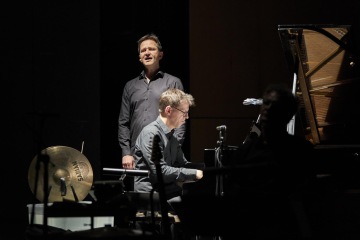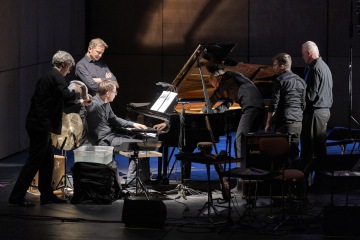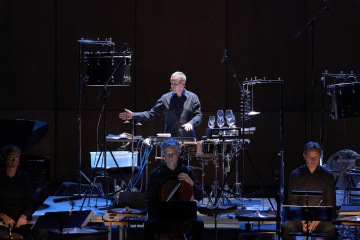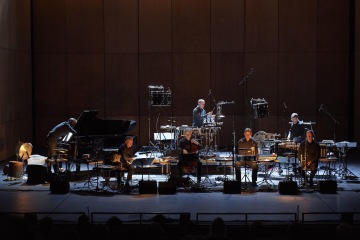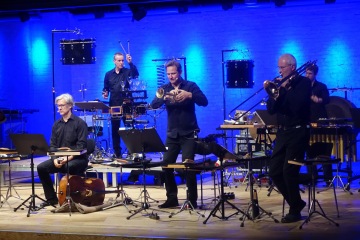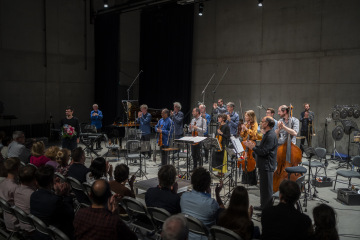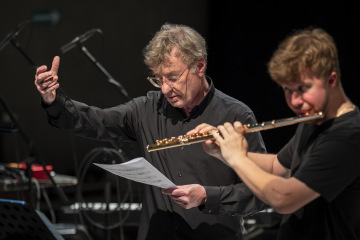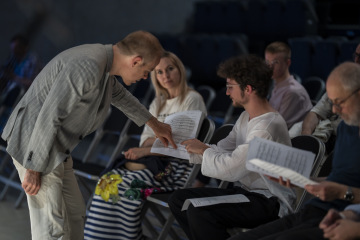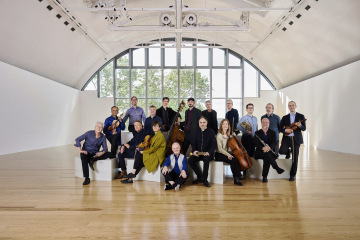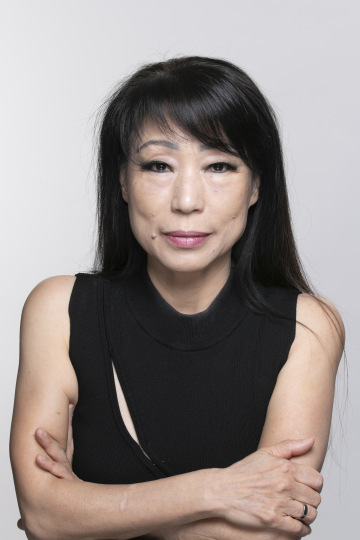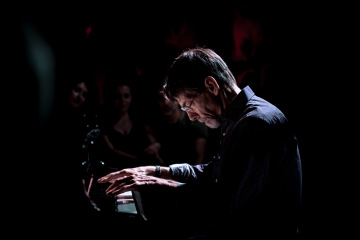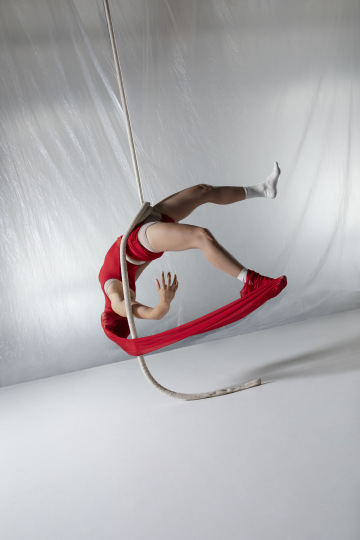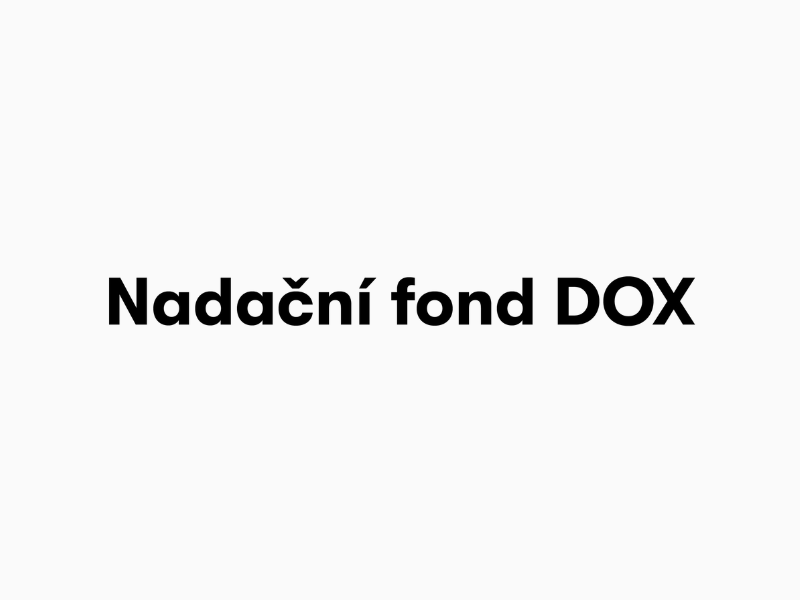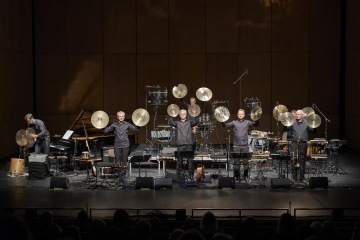
Let’s get straight to it, before we divert you
Tickets: Adults 350 CZK | students and seniors 250 CZK
Concerts: ascolta + Satoko Inoue: 600 CZK | 500 CZK
Festival pass 1 100 CZK | 1 000 CZK
Multifunctional hall DOX+
Poupětova 3, Praha 7
Show on map
Erik Borgir – violoncello, Andrew Digby – trombone, Florian Hoelscher – piano, Julian Belli – drums, Boris Müller – drums, Markus Schwind – trumpet, Hubert Steiner – guitar
Composer Martin Smolka and director and librettist Jiří Adámek first formed a creative partnership in 2014, when they created an exceptionally original opera, Sezname, otevři se! After its premiere at the NODO festival in Ostrava, it was successfully presented in a reworked chamber version in the Alfred ve dvoře theatre under the title Bludiště seznamů (The Infinity of Lists). Their latest joint project – a staged musical setting of Vor dem Gesetz (Before the Law) by Franz Kafka – was created in close collaboration with the seven-piece German contemporary music ensemble ascolta. Together, they developed a format on the boundaries of concert, theatre, and instrumental poetry, in which the aim is to conceive of “music as speech” and of “speech as music”. The performance does not include video, actors, or a narrator. All of the stage action is executed by the instrumentalists, who perform on their own instruments, play various objects placed around the stage (side instruments, as Smolka calls them), speak, and sing. The world premiere of this hour-long work took place this May as part of the prestigious Wittener Tage für neue Kammermusik festival in Germany. The Czech premiere in the DOX+ concert hall is an exceptional opportunity for Prague audiences to acquaint themselves with a new work by two leading Czech artists and experience a performance by this top-class German ensemble.
Martin Smolka, Jiří Adámek: Vor dem Gesetz (Before the Law), Czech premiere for 7 speaking musicians with side instruments, based on a short story by Franz Kafka
“Is the word music music?” asked John Cage a long time ago. Composer Martin Smolka and librettist Jiří Adámek ask a similar question in their joint work, Vor dem Gesetz (Before the Law).
This piece for seven speaking musicians with side instruments is based on texts by Franz Kafka and Albert Camus – some of them will be heard, others remain hidden in the strange merging of musical and theatrical elements. Before the Czech premiere of Vor dem Gesetz at the Contempuls Festival, Boris Klepal will interview both artists.
About the festival:
This year will see the tenth edition of the Contempuls Festival. Although this first jubilee might make us prone to stock taking, we won’t be looking into the past. As is tradition, the festival will present the newest – and, in our opinion, the most interesting – items from the world of contemporary music. Among the pillars of the dramaturgy is the Czech premiere of a collaborative, hour-long stage work by composer Martin Smolka and director and librettist Jiří Adámek, Vor dem Gesetz (Before the Law), based on the eponymous short story by Franz Kafka. It was created in close cooperation with the German ensemble ascolta, operating on the boundaries of concert, theatre, and instrumental opera. As usual, the programme also includes world premieres. Jakub Rataj’s IOI for Trio Catch is a festival commission, while Japanese pianist Satoko Inoue will play an unperformed part of Luboš Mrkvička’s piano cycle For the Piano. Another first performance will be a suite from The Four Seasons, composed for the Norwegian trio POING by Danish composer Bent Sørensen. Like in previous editions, there will also be classic works from the second half of the 20th century: Jo Kondo’s Sight Rhythmics, Morton Feldman’s last work for piano, Palais de Mari, or Georges Aperghis’ Trio for clarinet, cello and piano. As for the character of the concerts, the tenth edition will be extraordinarily diverse. The spectacular performance by ascolta is a sharp contrast to the introverted recital by Inoue, the concentrated playing of Trio Catch continues in the best traditions of ensembles specialising in new music, while POING represents a more relaxed and experimental approach.
